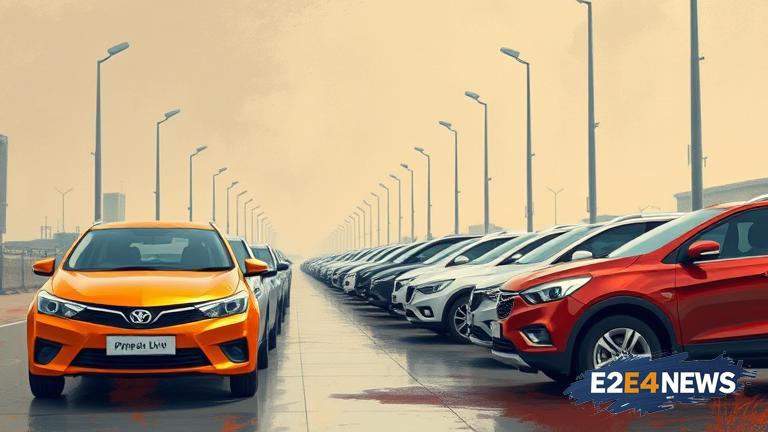The Indian automotive sector has been experiencing significant growth in recent years, driven by increasing demand for vehicles and government initiatives to promote the industry. However, experts believe that the sector’s growth could be hindered by inconsistent taxation policies. During the recent Siam conference, industry experts urged the government to maintain stability in automotive taxation to ensure the sector’s continued growth and competitiveness. The experts pointed out that frequent changes in taxation policies can lead to uncertainty and affect the industry’s ability to plan for the future. They also emphasized the need for a stable and predictable taxation regime to attract investments and promote the growth of the sector. The Indian government has implemented various policies to promote the automotive sector, including the GST and the FAME scheme. However, the frequent changes in taxation policies have created uncertainty in the industry. The experts believe that a stable taxation regime is essential to promote the growth of the sector and to achieve the government’s vision of making India a global hub for the automotive industry. The Indian automotive sector is a significant contributor to the country’s GDP and provides employment to millions of people. The sector has been growing rapidly, with the domestic market expected to reach 10 million units by 2025. However, the industry faces several challenges, including intense competition, rising input costs, and regulatory changes. The experts believe that a stable taxation regime can help the industry to overcome these challenges and achieve its growth potential. They also emphasized the need for the government to engage with the industry and to consider its concerns while formulating taxation policies. The Siam conference provided a platform for industry experts to discuss the challenges facing the sector and to suggest ways to promote its growth. The conference highlighted the need for a stable and predictable taxation regime to promote the growth of the sector. The experts also discussed the need for the government to promote the use of electric vehicles and to provide incentives for the adoption of clean technologies. The Indian government has set a target of having 30% of the country’s vehicles as electric by 2030. However, the industry believes that more needs to be done to promote the adoption of electric vehicles. The experts emphasized the need for a comprehensive policy framework to promote the growth of the electric vehicle sector. They also believed that the government should provide incentives for the adoption of clean technologies and to promote the use of alternative fuels. The Indian automotive sector is expected to play a significant role in the country’s economic growth and development. The sector has the potential to create millions of jobs and to contribute significantly to the country’s GDP. However, the industry faces several challenges, including intense competition, rising input costs, and regulatory changes. The experts believe that a stable taxation regime can help the industry to overcome these challenges and achieve its growth potential. They also emphasized the need for the government to engage with the industry and to consider its concerns while formulating taxation policies. The Siam conference provided a platform for industry experts to discuss the challenges facing the sector and to suggest ways to promote its growth. The conference highlighted the need for a stable and predictable taxation regime to promote the growth of the sector. The experts also discussed the need for the government to promote the use of electric vehicles and to provide incentives for the adoption of clean technologies. The Indian government has set a target of having 30% of the country’s vehicles as electric by 2030. However, the industry believes that more needs to be done to promote the adoption of electric vehicles. The experts emphasized the need for a comprehensive policy framework to promote the growth of the electric vehicle sector. They also believed that the government should provide incentives for the adoption of clean technologies and to promote the use of alternative fuels. The Indian automotive sector is a significant contributor to the country’s GDP and provides employment to millions of people. The sector has been growing rapidly, with the domestic market expected to reach 10 million units by 2025. The experts believe that a stable taxation regime can help the industry to achieve its growth potential and to contribute significantly to the country’s economic growth and development.
